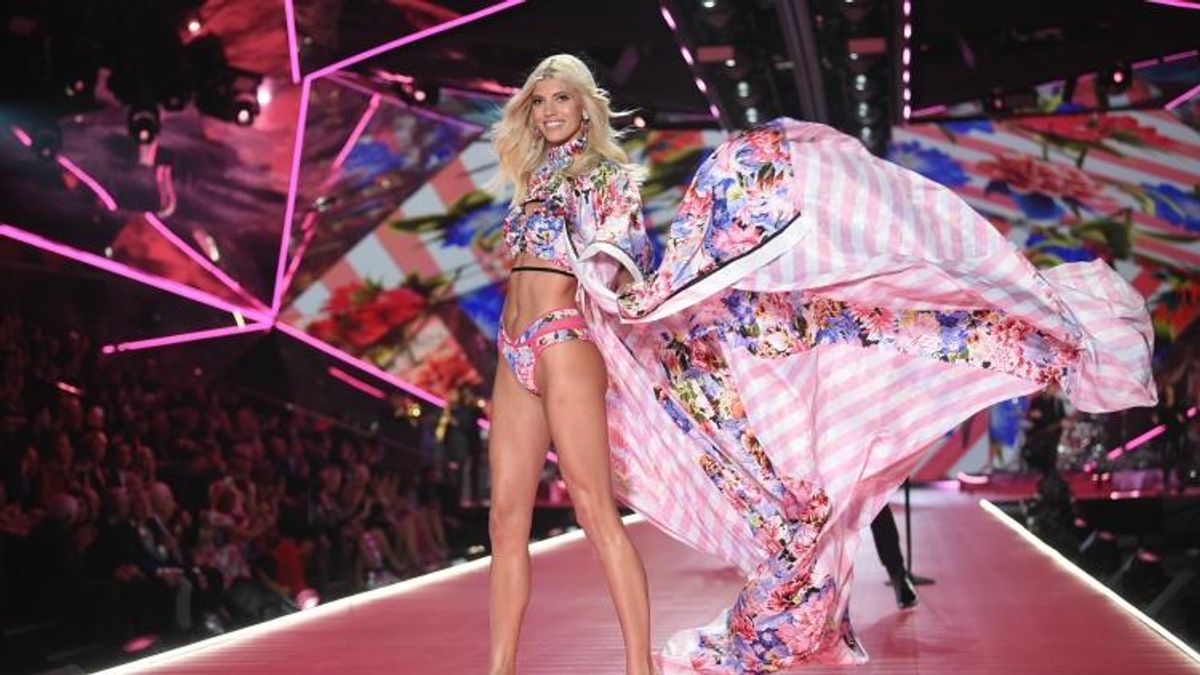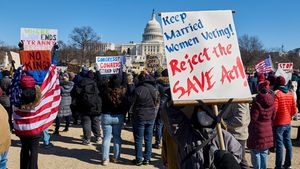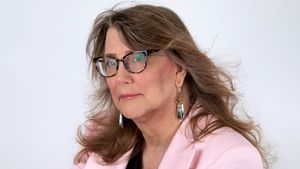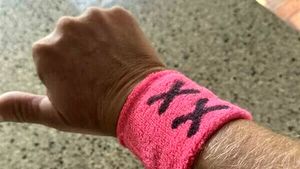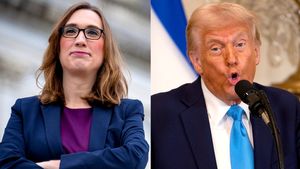Every year, millions across the globe watch the Victoria's Secret Fashion Show, an archaic fever dream of a world where women who wear -- and buy! -- lingerie are still thin, largely white and cis. In an interview with Vogue, chief marketing officer of L Brands (VS's parent company) Ed Razek doubled down on the brand's decision not to include plus size or transgender models with the same old refrain we keep hearing from men in positions of power in the newly-woke political and cultural landscape: changing the face -- on in this case, body -- of such an established and iconic brand just to better reflect the diversity of the industry would be pandering.
"The brand has a specific image, has a point of view. It has a history," said Razek. "It's hard to build a brand. It's hard to build Vogue, Ralph Lauren, Apple, Starbucks. You have a brand position and you have a brand point of view. The girls who have earned their way into the show have worked for it." The implication here is that the girls who aren't thin, cis and largely white haven't worked for it and haven't earned it.
"If you're asking if we've considered putting a transgender model in the show or looked at putting a plus-size model in the show, we have," added Razek, before going on to explain why Victoria's Secret won't cast "transsexuals" in their show. "I don't think we should. Well, why not? Because the show is a fantasy. It's a 42-minute entertainment special. That's what it is. It is the only one of its kind in the world, and any other fashion brand in the world would take it in a minute, including the competitors that are carping at us. And they carp at us because we're the leader. They don't talk about each other. I accept that."
It's clear that the "fantasy" Razek and Victoria's Secret are attempting to create is one in which transgender women don't exist, and to participate and endorse the erasure of trans women when the government is attempting to legally erase us from existence is irresponsible, oblivious, cruel and dangerous. Razek later apologized, saying that his statement "came across as insensitive" and that the brand would "absolutely cast a transgender model...We've had transgender models come to castings...And like many others, they didn't make it...But it was never about gender." And maybe that's true, because it's clearly about more than gender, it's about this historic global brand (that believes itself to still be dominating the intimates industry) attempting to impose their vision of womanhood upon the world.
But in this case, the receipts are literal receipts: consumers are spending their coin with brands like Aerie and Rihanna's Savage x Fenty, which have embraced the diversity of the global market by catering to a much more realistic range of women and in doing so have picked up a huge share of the market, which VS now only holds a third of. And while the Victoria's Secret Fashion Show as is may still draw in a billion viewers, the buzz around it is hardly comparable to Rihanna's Savage x Fenty fashion show, which embraced a wide spectrum of women to universal acclaim and unprecedented hype.
But there is still a Victoria's Secret inside every mall in America, which means that trans women across the country are still being reminded every day that we are unwelcome and unwanted. We're being told that in the ideal fantasy world of this company, which for so long has helped the standard of female beauty, we don't exist -- and that's already our reality.
